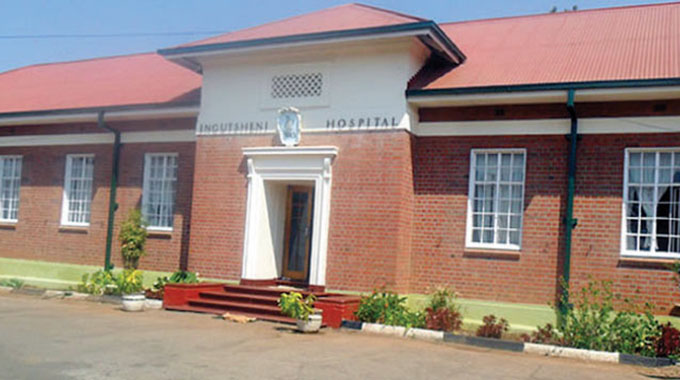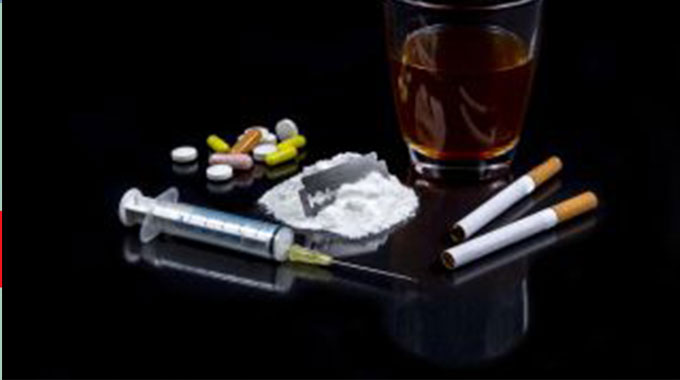
The Sunday News

Robin Muchetu, Senior Reporter
CASES of drug-induced psychosis admissions continue to rise at psychiatric institutions with revelations that 15-year-olds are being admitted for substance abuse, putting a strain on the institutions’ budgets as they do not charge user fees.
So dire is the situation that hospitals are failing to cope with the scourge having reached rural communities that were previously relatively free from cases of alcohol and substance abuse. Dr Parirenyatwa Maramba, the medical superintendent for Ngomahuru Psychiatric Hospital in Masvingo said the burden of drug and substance abuse was putting an enormous strain on the institution.

Ingutsheni Hospital
Ngomahuru is the second largest psychiatric hospital in the country after Ingutsheni in Bulawayo. Other central hospitals have annexes and wards that hold patients temporarily. Dr Maramba said 80 percent of their admissions were patients with drug-induced psychosis including minors. The hospital has a carrying capacity of about 300 inmates.
“We usually admit people over 18 years of age but what is disturbing is that we are now seeing 15-year-olds being brought in for drug abuse and need admission. The range that we admit is now from 15 to 40 years of age. The largest chunk of people are those in their late teens and students from tertiary institutions,” he lamented.
He says patients admitted were largely from Masvingo and Harare provinces that are brought in for a longer stay as the annexes do not keep them for long. He spoke on the strain that has caused on resources.

Drug abuse
“You must realise that for mental health patients, we do not charge user fees and we rely solely on the Government for support so we do not have any extra funding that assists the institution save for well-wishers that assist here and there. We have no donor support or partners that are there to aid the situation. The strain is not only on financial resources to cater to the patient’s needs but also on human resources. We do not have enough manpower to assist in various areas and it is a problem,” said Dr Maramba.
The male ward at Ngomahuru is overwhelmed as admissions go beyond capacity.
“At Ngomahuru, we have the male ward that gets the largest number of admissions for drug and substance abuse. It ordinarily admits 60 patients but we reach a high of 100 patients and this strains us a lot. The female ward is manageable with lower numbers,” he said.
Asked about the cases of high numbers of drug and substance abuse in young people, Dr Maramba said it was largely peer pressure.

Mental health
“When we sit and talk with them, they point at peer pressure, these young people in high schools are being inducted into drugs by their peers whom they see taking drugs and they follow suit. Again, the Covid-19-induced lockdown also saw the teens being idle for extended periods leading to them picking up these vices and ending up being admitted for drug abuse,” he added.
Dr Maramba said the number of admissions to Ngomahuru keeps scaling as drug abuse has also spread to rural communities and people are being brought in for rehabilitation. He also lamented that patients who will have recovered have extended stays at the hospital as families are reluctant to take them back to their homes.
“When these people recover, we discharge them back to their homes but family members are reluctant to take them back and they are forced to have extended stays at the institution further staining resources and space for new patients who should be admitted. But we are saying if we discharge them, we will have seen a substantial change in their mental health, they have been rehabilitated significantly, they are productive and functional enough to go back home,” he said.
He stressed the need for communities to take back their relatives with mental health issues once discharged as that is part of the rehabilitation process which enables them to get better faster if they are aware that they have family support.
Meanwhile, Ingutsheni Psychiatric Hospital chief medical officer Dr Nemache Mawere said the situation at the hospital had improved following an outcry for provisions for the patients.
“We are now ok, the situation has changed and we have adequate food stocks.” However, he said the number of admissions of people with drug-induced psychosis was still high.
“Numbers are always high in admissions, they will not change unless we implement community-based treatment where people are treated from facilities nearest to their homes and communities,” he said.
He said close to 90 percent of the patients in the acute wards are admitted for alcohol and substance abuse with over 2 000 more patients being seen in the out-patients department each month. The Khumalo ward, which is a male acute ward, holds about 200 patients periodically yet it has a holding capacity of 89 patients. — @NyembeziMu



